On December 7th , 2021, JICA organized a high-level event online as an official side event of Tokyo Nutrition for Growth Summit 2021. The event started with a keynote speech by JICA President Dr. KITAOKA Shinichi, followed by Dr. Ibrahim Assan Mayaki, the Chief Executive Officer of AUDA-NEPAD, Dr. Qu Dongyu, the Director-General of FAO, Ms. Henrietta H Fore, the Executive Director of UNICEF, and Dr. Mamta Murthi, the Vice President for Human Development of World Bank Group. They shared their organizations' visions for the realization of improved nutrition. The panel discussion focused on the possibility of promoting further efforts to improve nutrition in developing countries through collaboration among governments and development partners for the realization of collective impact. JICA President Dr. KITAOKA Shinichi announced the "JICA Nutrition Declaration: Nutrition for All: Ten-Point Commitment to Realize Human Security."
The keynote speech video (short ver.) is released in YouTube.
Keynote speech
JICA President Dr. KITAOKA Shinichi
JICA has long prioritized contribution to Human Security - a concept which means all individuals are entitled to freedom from fear and want, and the right to live in dignity. We believe governments and the international community have the responsibility to support these rights. Nutrition is the basis of human life and health, therefore is one of the most important foundations for Human Security. The most distinctive feature of JICA's approach, however, is its development cooperation based on Japan's experiences such as utilization of Maternal and Child Health (MCH) Handbook, and introduction of food and nutrition education, or "Shokuiku" and school lunches. On the occasion of the Tokyo Nutrition for Growth Summit 2021, JICA declares "JICA Nutrition Declaration: Nutrition for All: ten-Point Commitment to Realize Human Security," and will further promote its efforts, and strengthen partnerships among various stakeholders, in order to realize our shared goal of "Nutrition for All."
Dr. Ibrahim Assane Mayaki, Chief Executive Officer of AUDA-NEPAD
I am proud to be working with various partners to strengthen nutrition improvement and implement food security in member states of the African Union (AU). The Initiative for Food and Nutrition Security in Africa (IFNA) is already underway in 10 countries, and in partnership with RECs(1) is expanding its activities throughout Africa. As mentioned in IFNA's Commitments for the Tokyo Nutrition for Growth Summit 2021, it is important to bridge the gap between supply and demand through a multi-sectoral approach.
(1) REC: Regional Economic Communities
Dr. Qu Dongyu, the Director-General of FAO
Agrifood systems are the world's largest economic systems in terms of employment, livelihoods and planetary impact. Transforming agrifood systems into efficient, inclusive, resilient and sustainable systems can play a major role in eradicating poverty. It is essential to continue supporting strengthening of capacity for focused and scaled-up actions in Africa, and beyond. FAO looks forward to collaborating with all partners and stakeholders, including civil society and the private sector and working together in a coherent manner for a world free from hunger.
Ms. Henrietta H Fore, the Executive Director of UNICEF
UNICEF envisions a world where all children, adolescents and women realize their rights to nutrition and has developed a new 10-year Nutrition Strategy(2) to accelerate progress towards achieving the nutrition targets of the SDGs. We will focus on the prevention and treatment of malnutrition in all its forms and conditions, and continue to work with governments and partners to improve the quality of children's food, diets and food environments.
Dr. Mamta Murthi, Vice President for Human Development, World Bank Group
Nutrition is critical for human capital to develop and eventually for driving private sector productivity and national economies and achieving Human Security. Both undernourishment and overweight have huge health and economic implications. The coronavirus disease (COVID-19) pandemic is also expected to increase stunting and wasting in children, but this is a manageable crisis. With government leadership and appropriate supportive partnerships, tangible and rapid changes can be made. Addressing the crisis at its roots needs a lot of quality financing and inclusive partnerships, and the World Bank Group will do its part.
Panel Discussion
Moderated by Ms. Gerda Verburg, UN SUN Movement Coordinator, a panel discussion was held to exchange views on effective collaboration among partners to achieve maximum impact in improving nutrition.
JICA President Dr. KITAOKA said "To achieve the global nutrition agenda, it is important that all partner organizations do not conduct the same activities, but rather that they each carry out activities where they have a comparative advantage. Recognizing each other's strengths and coordinating activities accordingly to optimize impact will help bring about the best outcomes. The first step must be for organizations to share information and their knowledge with each other, and this is the basis for collaboration and the foundation of trust."
Dr. Mayaki highlighted the importance of three points to get a high level of commitment: a good political environment, the ability to implement a multi-sectoral approach, and complementarity with partners.
The FAO Director-General stated that the FAO Hand-in-Hand initiative(3) , together with concrete works by government, private sector, NGO, academia and international organizations, at the regional and country level, as well as an enabling policy focused on specific issues and area, were essential for delivery and tangible impacts. In this regard, Dr. Qu cited the leading example of school meal projects. He also emphasized importance of increased financing by donors to support developing nations, especially vulnerable countries.
In conclusion, Ms. Gerda summarized the discussion by saying that it is important to understand how to continue this momentum through collaboration and complementarity among all stakeholders, and the need for political will and partnership to achieve this. She also emphasized the importance of how to accelerate and measure this momentum, which requires the utilization of domestic resources, national ownership, and financial and capacity building, so that societies, people, and communities can move forward.
Speakers
KEYNOTE SPEAKER
Dr. KITAOKA Shinichi, President, Japan International Cooperation Agency (JICA)
SPEAKERS
Dr. Ibrahim Assane Mayaki, Chief Executive Officer, African Union Development Agency - New Partnership for Africa's Development (AUDA-NEPAD)
Dr. Qu Dongyu, Director-General, Food and Agriculture Organization of the United Nations (FAO)
Video Message:
Ms. Henrietta H Fore, Executive Director, United Nations Children's Fund (UNICEF)
Dr. Mamta Murthi, Vice President for Human Development, World Bank Group
MODERATOR
Ms. Gerda Verburg, UN SUN Movement Coordinator
OVERALL HOST
Ms. SANO Keiko, Director General, Economic Development Department, Japan International Cooperation Agency (JICA)




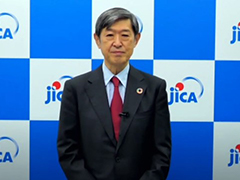

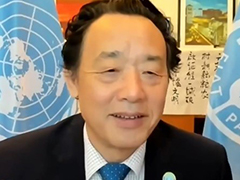
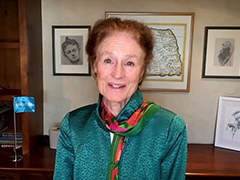
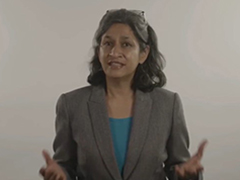
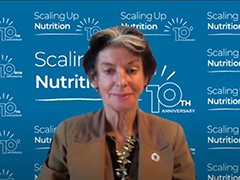
scroll